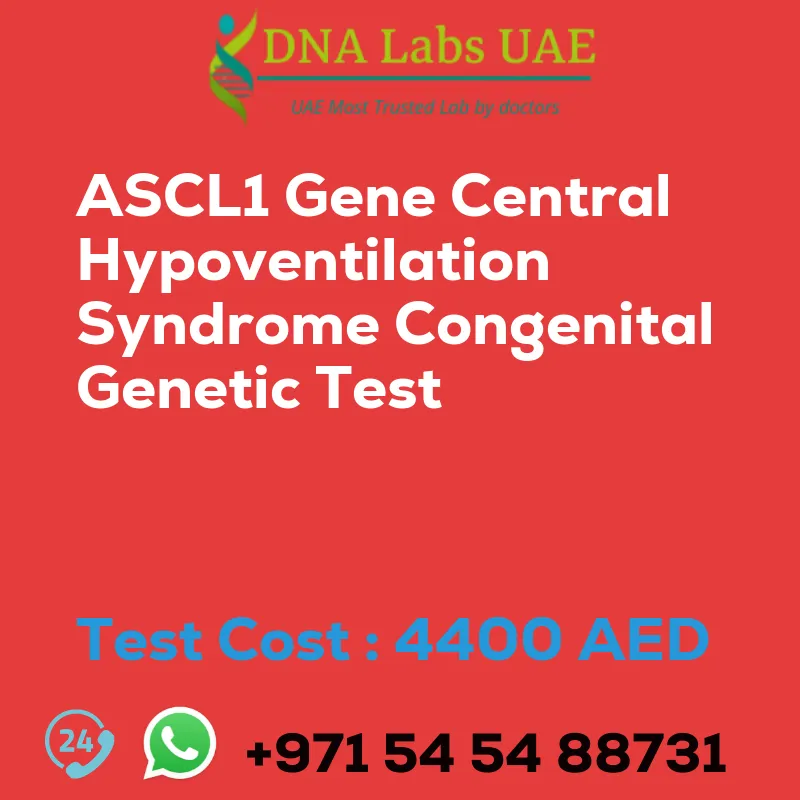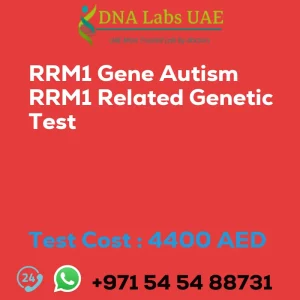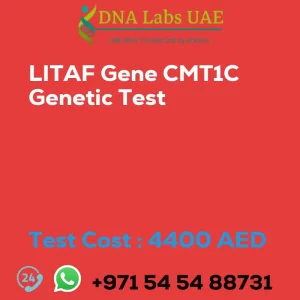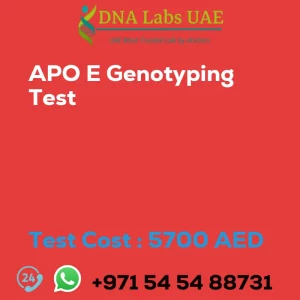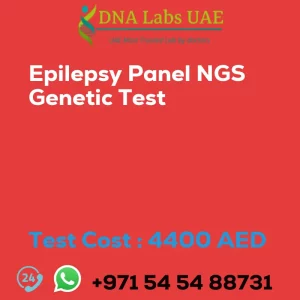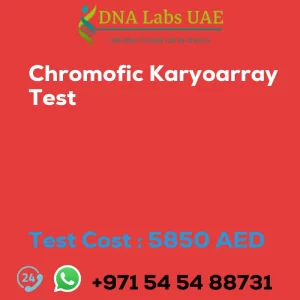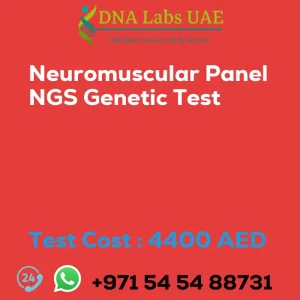ASCL1 Gene Central Hypoventilation Syndrome Congenital Genetic Test
Genetic testing for the ASCL1 gene is available at DNA Labs UAE. This test is specifically designed to detect mutations in the ASCL1 gene, which is associated with central hypoventilation syndrome, congenital (CCHS). CCHS is a rare genetic disorder that affects the control of breathing.
Test Details
The ASCL1 gene is responsible for the development and function of certain nerve cells in the brainstem that control breathing. Mutations in this gene can lead to difficulties in breathing during sleep and waking hours for individuals with CCHS.
NGS (Next-generation sequencing) technology is used for this genetic test. NGS allows for the analysis of multiple genes simultaneously, providing a more comprehensive and accurate assessment of DNA changes. This advanced technology can detect even small changes in DNA that may be missed by traditional genetic testing methods.
Test Components and Price
The cost of the ASCL1 Gene Central Hypoventilation Syndrome Congenital Genetic Test at DNA Labs UAE is 4400.0 AED.
Sample Condition and Report Delivery
The test requires a blood sample or extracted DNA. Alternatively, one drop of blood can be collected on an FTA card. The report will be delivered within 3 to 4 weeks.
Test Type and Doctor
The ASCL1 Gene Central Hypoventilation Syndrome Congenital Genetic Test falls under the category of Neurological Disorders. It is recommended to consult with a Neurologist for this test.
Test Department and Pre Test Information
The test is conducted in the Genetics department. Prior to the test, it is advised to provide the clinical history of the patient who is going for the ASCL1 Gene Central Hypoventilation Syndrome Congenital Genetic Test. Additionally, a Genetic Counselling session may be conducted to draw a pedigree chart of family members affected with ASCL1 Gene Central Hypoventilation Syndrome Congenital.
Benefits of Genetic Testing for CCHS
Genetic testing for CCHS can provide several benefits:
- Confirmation of diagnosis
- Identification of carriers of the gene mutation
- Information about the risk of passing the mutation on to future generations
- Guidance for medical management and treatment decisions
Overall, the ASCL1 Gene Central Hypoventilation Syndrome Congenital Genetic Test offered by DNA Labs UAE is a valuable tool for diagnosing and managing CCHS. It utilizes advanced NGS technology to provide accurate and comprehensive results.
| Test Name | ASCL1 Gene Central hypoventilation syndrome congenital Genetic Test |
|---|---|
| Components | |
| Price | 4400.0 AED |
| Sample Condition | Blood or Extracted DNA or One drop Blood on FTA Card o |
| Report Delivery | 3 to 4 Weeks |
| Method | NGS Technology |
| Test type | Neurological Disorders |
| Doctor | Neurologist |
| Test Department: | Genetics |
| Pre Test Information | Clinical History of Patient who is going for ASCL1 Gene Central hypoventilation syndrome, congenital NGS Genetic DNA Test A Genetic Counselling session to draw a pedigree chart of family members affected with ASCL1 Gene Central hypoventilation syndrome, congenital |
| Test Details |
The ASCL1 gene is associated with central hypoventilation syndrome, congenital (CCHS), which is a rare genetic disorder that affects the control of breathing. Individuals with CCHS have difficulty breathing during sleep and may also have breathing problems during waking hours. This disorder is caused by mutations in the ASCL1 gene, which provides instructions for making a protein that is involved in the development and function of certain nerve cells in the brainstem that control breathing. NGS (Next-generation sequencing) genetic testing can be used to detect mutations in the ASCL1 gene. This type of testing uses advanced technology to analyze multiple genes simultaneously and can detect even small changes in DNA that may be missed by traditional genetic testing methods. Genetic testing for CCHS can help confirm a diagnosis, identify carriers of the gene mutation, and provide information about the risk of passing the mutation on to future generations. It can also help guide medical management and treatment decisions for individuals with CCHS. |

